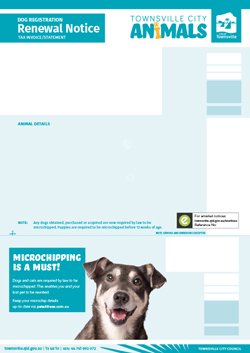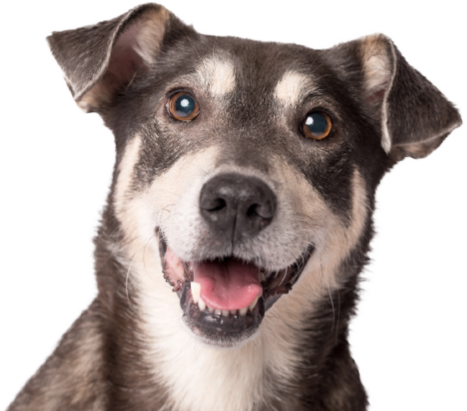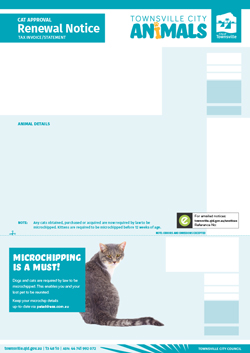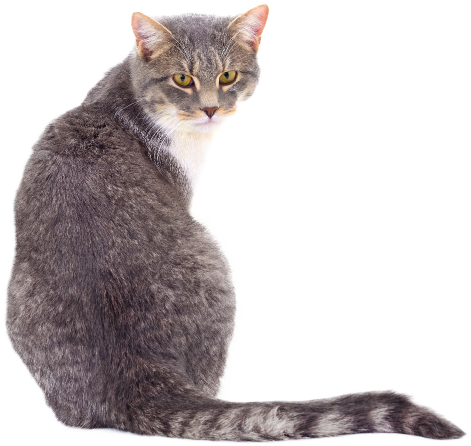Animal Registration and Legislation
Animals play an important role in our community providing companionship and security. Anyone intending to own an animal in Townsville is legally liable and is always responsible for their pets. Visit Be a Responsible Pet Owner for more information.
On this page:
Animal Registrations and Approvals
Registration and identification of pets in urban areas is important for owner's peace of mind, and to enable Council to plan for future community needs. In Townsville, all dogs must be registered each year and wear a registration tag, and cats require an approval that is renewed each year. For a full list of required animal approvals and associated applications, please refer below.
Animal management local laws apply to the Townsville City Council local government area. These local laws set out minimum standards for keeping pets and other animals in the Townsville local government area, and also prescribe the types of approvals needed for the keeping of various animals.
Council officers monitor compliance with the local laws, and also monitor some requirements under the Animal Management (Cats and Dogs) Act 2008, for example, registration, microchipping and regulated dogs.
For information on animal fees and charges, please visit our Fees and Charges page.
Dogs
Dog Registration and Renewals
The Animal Management (Cats and Dogs) Act 2008 requires all dogs to be registered.
All dogs, including puppies, must be registered within 14 days of acquisition or moving to Townsville, and wear a registration tag.
Registration renewals will be mailed out in August of each year. Annual registration needs to be renewed by 31 August each year.
For new registrations, registration renewals, reciprocal registrations or to update your dog's details visit our Animal Registration Payments page.
Microchipping Dogs

All puppies must be microchipped. It is the responsibility of the owner, whether they are the current owner trying to sell or give the dog away, or the new owner acquiring the dog, to ensure the dog is microchipped.
Owners are encouraged to microchip their dogs from 8 weeks of age, as this helps ensure that these pets can be quickly reunited with the owners after separation.
To update your pet’s microchipping details, go to the Pet Address website.
Council may offer free microchipping at some events to registered dogs and approved cats in Townsville. More information on these events will be made available on What's On Townsville.
Number of Dogs Allowed
The number of dogs allowed varies based on the size of your property:
- under 400m²:
- requires Deemed Approval (PDF, 180.0 KB)
- multi-residential (such as flats, boarding houses, tenement buildings, home units, townhouses and duplexes):
- requires Deemed Approval (PDF, 180.0 KB)
- at least 400m², less than 4,000m²:
- 2 dogs maximum
- 3 to 4 dogs with approval (PDF, 128.5 KB)
- 4,000m² or greater:
- 4 dogs maximum
- kennels 400m² or greater:
- 5 or more dogs with kennel approval (PDF, 166.0 KB).
Dogs in Public Places
When walking a dog, you must have it under effective control on a leash. Council provides off-leash areas where dogs can be walked without a leash.
You must pick up your dog’s faeces in public areas.
Regulated Dogs
Regulated dogs include:
- a declared dangerous dog
- a declared menacing dog
- a declared restricted dog.
Different registration fees and conditions apply to declared regulated dogs. Owners of regulated dogs need to comply with additional conditions such as enclosure, desexing, collar and tag, and signage requirements. For more information, visit the Regulated Dogs page of the Queensland Government’s website.
The requirements for regulated dogs can be found in the Animal Management (Cats and Dogs) Act 2008 and the Animal Management (Cats and Dogs) Regulation 2019.
Working Dogs
Working dogs are required to be registered, but no dog registration fee is charged.
A working dog is a dog usually kept or proposed to be kept on rural land and by an owner who is a primary producer or engaged or employed by a primary producer; and primarily is used or being trained for the purpose of droving, protecting, tending or working stock (excluding a regulated dog).
The documentation requirements for proof of the animal being a working dog vary slightly between primary producers and those who are the employee of a primary producer.
If you are a primary producer, the documentation you must supply is:
- the ABN number of business registration from the Tax Office identifying that the business is registered as a Primary Producer and showing that it is in the dog owners name
- new dog registration form
- a Statutory Declaration from the person stating that the dog is a working dog (by definition in the Act).
If you are the employee of a primary producer the documentation you must supply is:
- a letter from the business owner (on their business letterhead and ABN) confirming that the person is an employee of the business, that the business is registered as a primary producer and that the employee is required to use a dog for the purposes of his duties.
- new dog registration form
- a Statutory Declaration from the person stating that the dog is a working dog (by definition in the Act).
Restricted Dogs
You are not allowed to have a restricted dog breed.
Restricted dogs include:
- Dogo Argentino
- Fila Brasileiro
- Japanese Tosa
- American Pit Bull Terrier or Pit Bull Terrier
- Perro de Presa Canario or Presa Canario
- any other breed that is the subject of a restricted dog declaration under the Animal Management (Cats and Dogs) Act 2008.
Parvovirus
Pet owners must ensure their dogs up to date with vaccinations. Parvovirus is more commonly seen in Townsville dogs as the weather becomes warmer.
Parvovirus is the infectious disease that we are most concerned about in our dogs in Australia. This virus is highly contagious and extremely stable in the environment. Puppies and young adult dogs are most susceptible but no dog can be considered to be safe from parvovirus. It is a severe gastroenteritis that destroys the lining of the small intestine, causing vomiting, lethargy, anorexia, dehydration, severe abdominal pain and copious foul-smelling bloody diarrhoea. Parvovirus is fatal without treatment and even with treatment approximately one quarter of infected dogs will not survive. There is no cure and treatment involves intensive care in isolation for days to weeks at a vet clinic, which can be very expensive.
Check that your dogs are up to date with vaccinations and if you have a pup it should not be out in streets, parks or on beaches until after it’s third puppy vaccination.
If your pup or dog begins to show any of the symptoms mentioned, see your vet immediately. They can do a test on the spot for parvovirus and even if it is something else treatment will be required.
Cats
Cat Approvals and Renewals

Cat owners must apply for approval to keep a cat on their property. A cat approval is for one to two cats per property.
Approval renewals will be mailed out in August of each year. Annual approval needs to be renewed by 31 August each year.
For new cat approvals, renewals, reciprocal approvals or to update your cat's details visit our Animal Registration Payments page.
Approvals For More Than Two Cats
If you wish to keep more than two cats, you must apply for approval, either for three to six cats, or for a cattery.
Approval for three to six cats is dependent on your property meeting the animal management local law requirements. These approvals are for three years.
Approval for a cattery (more than six cats) is dependent on your property meeting the animal management local law requirements. These approvals need to be renewed annually.
- Application for Excess Cat Approval – Between 3-6 Cats on Property (PDF, 128.1 KB)
- Application for Cat Approval – Up to 6 cats on Properties 4,000m² or Greater (PDF, 145.5 KB)
- Application to conduct a Kennel or Cattery (PDF, 166.0 KB)
- Cat Details Form (PDF, 79.4 KB)
Microchipping Cats

All kittens must be microchipped before 12 weeks of age. It is the responsibility of the owner, whether they are the current owner trying to sell or give the cat away, or the new owner acquiring the cat, to ensure the animal is microchipped.
Owners are encouraged to microchip their cats from 8 weeks of age as this helps ensure these pets can be quickly reunited with the owners after separation.
To update your pet’s microchipping details, go to the Pet Address website.
Council may offer free microchipping at some events to registered dogs and approved cats in Townsville. More information on these events will be made available on What's On Townsville.
Number of Cats Allowed
The number of cats allowed varies based on the size of your property.
- under 400m²:
- 2 maximum with approval (PDF, 86.4 KB)
- multi-residential (such as flats, boarding houses, tenement buildings, home units, townhouses and duplexes):
- 2 maximum with approval (PDF, 86.4 KB)
- at least 400m², less than 4,000m²:
- 3 to 6 cats with approval (PDF, 128.1 KB)
- 4,000m² or greater:
- up to 6 cats with approval (PDF, 145.5 KB)
- cattery 400m² or greater:
- over 7 cats with cattery approval (PDF, 166.0 KB).
Changes to Registration, Approval or Ownership
To amend a current registration (for example, if the animal has been desexed, has died or has changed owners), please complete the appropriate form:
- Change of Animal Registration Details form (Online)
- Change of Animal Registration Details form (PDF, 83.2 KB)
- Change of Animal Registration Ownership form (PDF, 80.0 KB)
In some circumstances, you may be eligible to receive a partial refund of your dog registration, such as if the animal is now desexed, or you are now a pensioner concession card holder:
- Request for Refund (PDF, 134.5 KB)
Birds and Poultry
Number of Birds and Poultry Allowed
The number of birds and poultry allowed varies based on the size of your property.
Chicken, Ducks, Geese
- under 1,000m2:
- 6 maximum
- 1,001m2 to 4,000m2:
- 12 maximum
- over 4,000m2:
- not applicable.
Roosters
- under 4,000m2:
- not allowed
- over 4,000m2:
- not applicable.
Cockatoos, Galahs, Peacocks
- under 4,000m2:
- 1 maximum with approval (PDF, 125.9 KB).
Budgerigars, Canaries or Similar
- under 4,000m2:
- 20 maximum does not require approval
- over 20 requires Deemed Approval (PDF, 180.0 KB)
- over 4,000m2:
- not applicable.
Horses, Pigs and Other Livestock
Number of Horses, Pigs and Other Livestock Allowed
The number of horses, pigs and other livestock allowed varies based on the size of your property.
For more information on the keeping of livestock, please refer to Subordinate Local Law No. 2 Animal Management.
Pigs
Number of pigs allowed:
- 4,000m2:
- not allowed
- 4,001m2 to 10,000m2:
- 2 maximum
- Over 10,001m2:
- not applicable.
Horses, Donkeys, Cows, Camels or Similar
Number of horses, donkeys, cows, camels, or similar allowed:
- Under 2,000m2:
- not allowed
- 2,001m2 to 4,000m2:
- 1 maximum
- 4,001m2 to 10,000m2:
- 2 maximum does not require approval.
- over 2 requires Deemed Approval (PDF, 180.0 KB)
- Over 10,000m2:
- not applicable.
Sheep, Goats, Alpacas or Similar
Number of sheep, goats, alpacas or similar allowed:
- Under 2,000m2:
- not allowed
- 2,001m2 to 4,000m2:
- 4 maximum does not require approval
- over 4 requires Deemed Approval (PDF, 180.0 KB)
- 4,001m2 to 6,000m2:
- 6 maximum does not require approval
- over 6 requires Deemed Approval (PDF, 180.0 KB)
- Over 6,001m2:
- not applicable.
Minimum Standards for Animal Keeping
Enclosures
You must make sure that your dog, cat or other pet is kept in an enclosure that stops it from wandering or escaping. If your neighbour has a wandering cat that is causing a nuisance, let them know with this 'Dear Neighbour' letter (PDF, 62.1 KB).
The enclosure or yard where your animal is kept must be large enough for the animal’s size and activity requirements.
There are stricter enclosure restrictions on menacing and dangerous dogs.
Odours
The enclosure in which you keep your animal must be kept in a clean condition. Be mindful of the impact of animal waste odours on your neighbours and take care to prevent animal wastes from entering the stormwater system.
Noise
You must ensure that your animal does not make excessive noise, so that it doesn’t disturb your neighbours. Excessive noise is unstimulated barking that is made for a total of more than six minutes in any hour from 7am to 10pm, or noise that is made for a total of more than three minutes between 10pm and 7am. Our Barking Dogs page offers tips on how you may reduce your dog’s excessive barking.
Birds and Livestock
If you have birds, a horse or other livestock animal, there are special restrictions such as the size and location of enclosures. You can find these in Subordinate Local Law 2 (Animal Management), Schedule 5.





